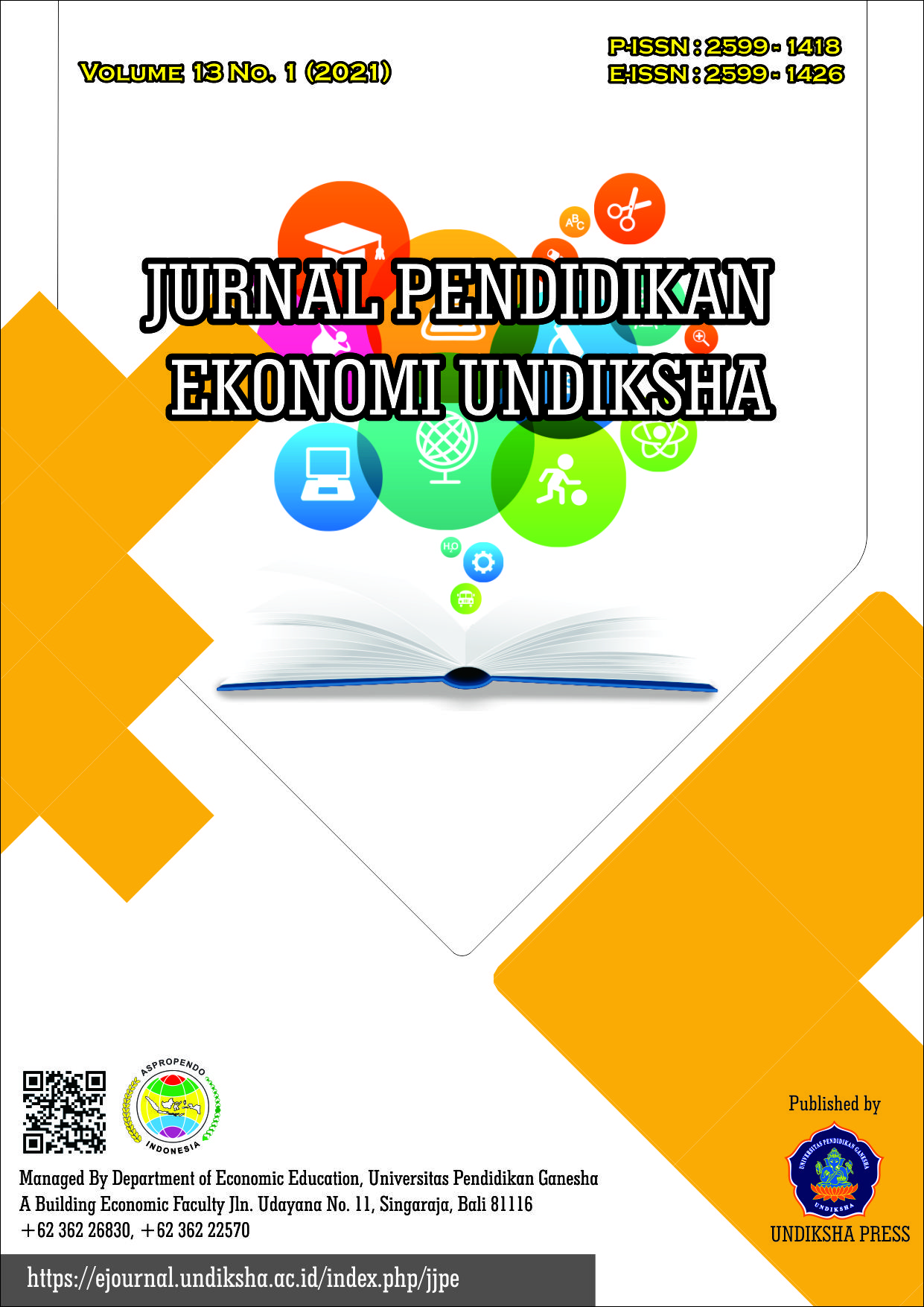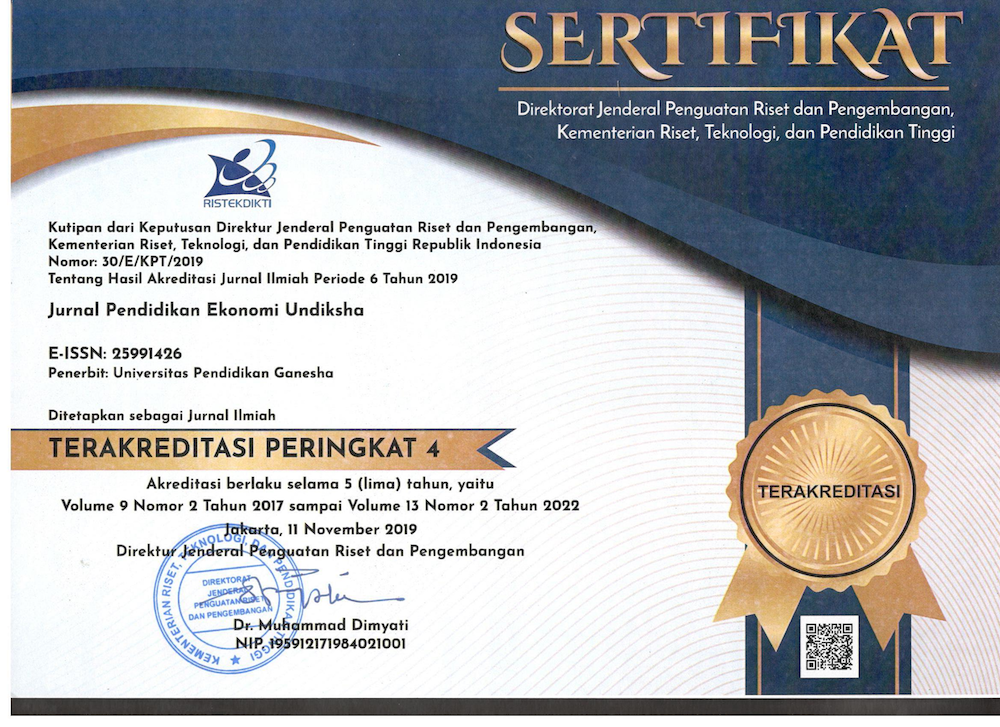Studi Komparasi Metode Pembelajaran Kooperatif STAD dan Ekspositori dalam Meningkatkan Learning Outcome pada Computer for Communication
DOI:
https://doi.org/10.23887/jjpe.v13i1.34070Keywords:
cooperative learning STAD, expository, learning outcomeAbstract
The problem often experienced in learning computer for communication to achieve maximum learning outcomes is the accuracy in presenting the materials, so the method used matches the characteristics of the learning material. In this case, the selection of teaching methods must be adjusted to the current situation and condition to obtain innovative and effective method because the students’ ability is heterogeneous. This study aims to determine students’ learning outcomes using cooperative learning STAD, to determine students’ learning outcomes using expository, as well as to find out the difference students’ learning outcomes between cooperative learning STAD and expository methods. Therefore, this study was designed using quasy-experimental with pre-test and post-test non-equivalent control group design. The population was students of D3 Business Administration Program of Politeknik Negeri Malang consisting of two groups, control and experimental class as a sample. Quantitative statistical analysis was used as a tool in this study. Through t-test, it is found the results of obtained t-count is 3.803 and higher than t table = 1.99. It means that there was a significant difference between the learning outcome of the control and the experimental group on computer for communication subject.
References
Butcher, C., Davies, C., & Highton, M. (2006). Designing learning: From module outline to effective teaching. In Designing Learning: From Module Outline to Effective Teaching.
Esminarto, E., Sukowati, S., Suryowati, N., & Anam, K. (2016). Implementasi Model STAD Dalam Meningkatkan Hasil Belajar Siswa. Briliant: Jurnal Riset Dan Konseptual.
Huda, M. (2019). Model-Model Pengajaran Dan Pembelajaran Isu-Isu Metodis Dan Paradigmatis. Yogyakarta: Pustaka Belajar.
Kumpas-Lenk, K., Eisenschmidt, E., & Veispak, A. (2018). Does the design of learning outcomes matter from students’ perspective? Studies in Educational Evaluation.
Pangestuti, A. (2017). Penerapan Model Pembelajaran Biologi Berbasis Remap-Stad Untuk Meningkatkan Kemampuan Berpikir Kritis Dan Hasil Belajar Kognitif Mahasiswa Ikip Budi Utomo Malang. Edubiotik.
Sanjaya, W. (2015). Perencanaan dan Desain Sistem Pembelajaran - Dr. Wina Sanjaya, M.Pd - Google Books. Kencana,Prenadamedia Group.
Siregar, N., Sahirah, R., & Harahap, A. A. (2020). Konsep Kampus Merdeka Belajar di Era Revolusi Industri 4.0. Fitrah: Journal of Islamic Education.
Slavin, R. E. (2005). Cooperative Learning: Theory, Research and Practice. London: Allymand Bacon.
Sugiono P.D. (2011). Metode Penelitian Pendidikan (pendekatan kuantitatif,kualitatif,R&D). Bandung: Alfabbeta Pres.
Sutirman. (2013). Media & Model-model Pembelajaran Inovatif. Yogyakarta: Graha Ilmu.
Syafi’i, A., Marfiyanto, T., & Rodiyah, S. K. (2018). Studi Tentang Prestasi Belajar Siswa Dalam Berbagai Aspek Dan Faktor Yang Mempengaruhi. Jurnal Komunikasi Pendidikan.
Downloads
Published
How to Cite
Issue
Section
License
Copyright (c) 2021 Jurnal Pendidikan Ekonomi Undiksha

This work is licensed under a Creative Commons Attribution-ShareAlike 4.0 International License.





